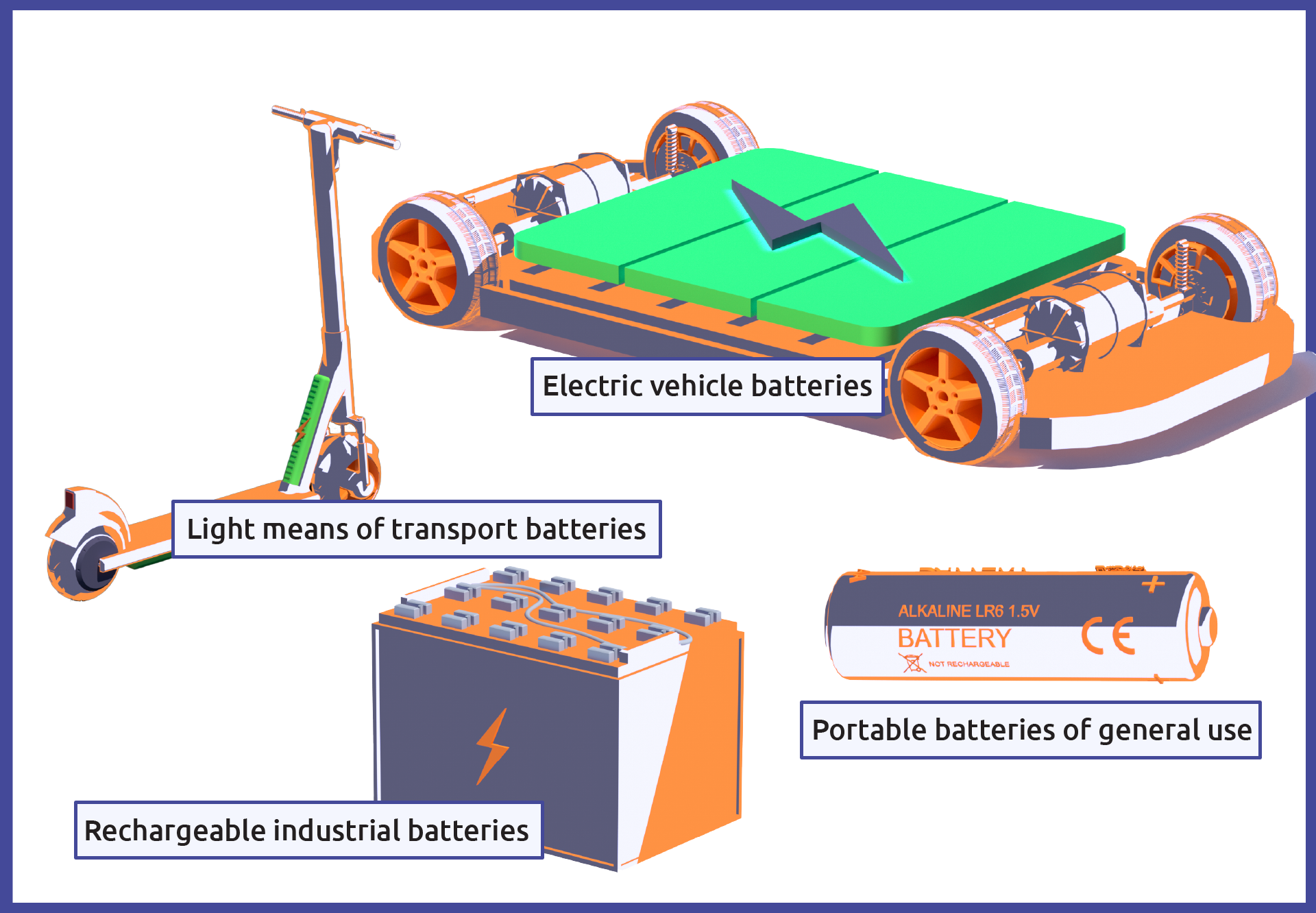Electrochemical performance and durability parameters of batteries

“Batteries placed on the Union market should be durable and of high performance.” - EU 2023/1542.
Batteries which satisfy the performance and durability criteria are fundamental for guaranteeing environmental sustainability and our well-being. Therefore, the focus of the regulation is to improve resource efficiency and reduce the adverse impacts of waste generated by non-reusable batteries.
Information regarding battery performance must be available on the battery label, enabling the end-consumer to make an informed purchase and to compare different batteries based off their label.
Scope
Information regarding electrochemical performance and durability requirements apply to certain categories of batteries:
- rechargeable industrial batteries with a capacity greater than 2 kWh
- light means of transport batteries
- electric vehicle batteries
- portable batteries of general use

Portable batteries of general use are:
- AA
- AAA
- AAAA
- 4,5V (3R12)
- 9V (PP3)
- A23
Button cells, even if they are portable batteries of general use, are out of the scope of electrochemical performance and durability requirements.
Parameters related to electrochemical performance and durability
From 18 August 2024, rechargeable industrial batteries with a capacity greater than 2 kWh, LMT batteries and electric vehicle batteries shall be accompanied by a document containing values for the electrochemical performance and durability parameters:
- Rated capacity (in Ah) and capacity fade (in %)
- Power (in W) and power fade (in %)
- Internal resistance (in Ω) and internal resistance increase (in %)
- Where applicable, energy round trip efficiency and its fade (in %)
- The expected life-time of the battery under the reference conditions for which it has been designed, in terms of cycles

From 18 August 2028 or 24 months after the date of entry into force of the delegated act, whichever is the latest, portable batteries of general use, shall meet the minimum values for the electrochemical performance and durability parameters. These parameters are divided based on the type of portable battery.
1. Parameters for non-rechargeable batteries
- Minimum average duration, minimum average time reached on discharge
- Delayed discharge performance, the relative decrease of the minimum average duration
- Resistance to leakage, resistance to unplanned escape of electrolyte, gas or other material contained in the battery
2. Parameters for rechargeable batteries
- Rated capacity (in Ah)
- Charge retention (in C=As or in Ah), the capacity that a battery can deliver after storage
- Charge recovery (in C=As or in Ah), the capacity that a battery can deliver with a subsequent recharge after storage
- Endurance in cycles, the number of charge and discharge cycles a battery can perform
- Resistance to leakage, resistance to unplanned escape of electrolyte, gas or other material contained in the battery.
By 31 December 2030, the Commission shall assess the feasibility of measures, to phase out non-rechargeable portable batteries of general use with a goal of minimising their environmental impact.

Electric vehicles batteries
For electric vehicle batteries, the informal UNECE Working Group on Electric Vehicles and the Environment have developed in-vehicle durability requirements which are to be applied in the Union. Those requirements shall be present in a future regulation - Euro 7, which deals with emissions and battery durability on type-approval of motor vehicles, engines and systems for such vehicles.
Therefore, regulation EU 2023/1542 only sets information requirements for the performance and durability of electric vehicle batteries.
Mobile phones and tablets batteries
On the other hand, batteries incorporated into mobile phones and tablets will have performance and durability requirements set through a future ecodesign regulation. That new regulation also aims to update the Commission Regulation (EU) No 617/2013 (10) on computers and computer servers.

Gardening tools or cordless power tools batteries
For portable batteries that are incorporated in other appliances, such as gardening tools or cordless power tools, the possibility of setting minimum performance and durability requirements should be addressed in relevant product legal acts, such as implementing acts under Directive 2009/125/EC on ecodesign. Therefore, future provisions regarding the minimum necessary requirements are expected.